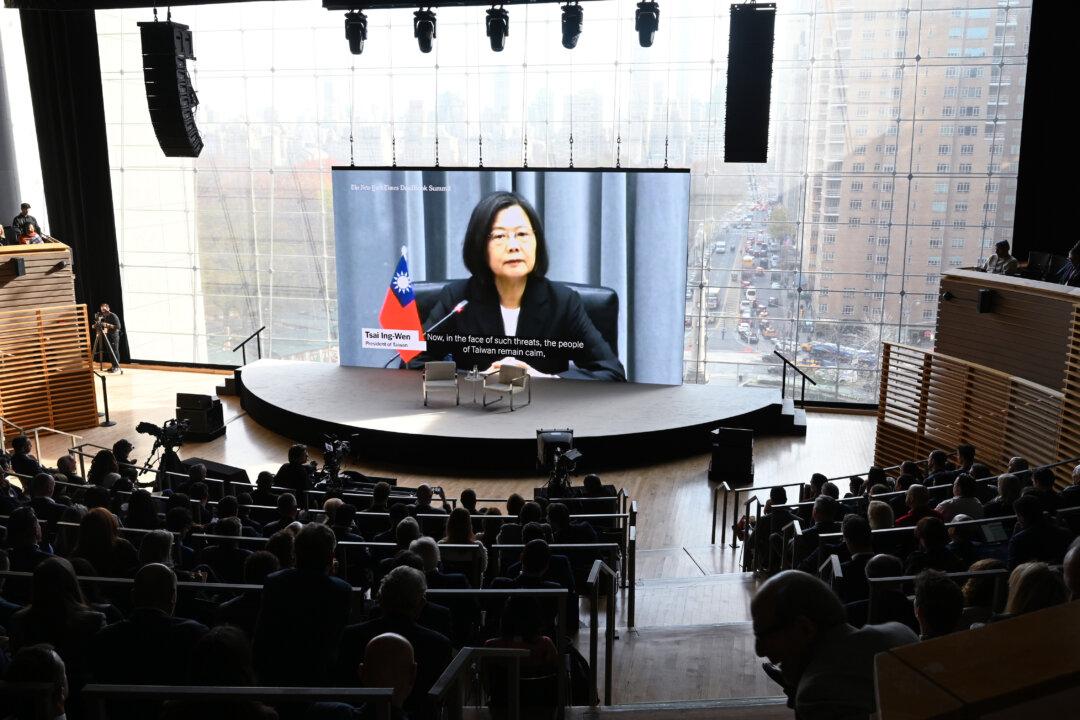China’s communist regime is unlikely to consider an invasion of Taiwan as its leadership is “overwhelmed” by the challenges at home, according to Taiwan President Tsai Ing-wen.
Taiwan, a self-ruled island that China’s ruling Communist Party has claimed as its territory, is facing “mounting military intimidation, gray-zone campaigns, cyberattacks, and information manipulation,” Ms. Tsai said in an interview with the New York Times that was broadcast at the DealBook Summit on Nov. 29.




